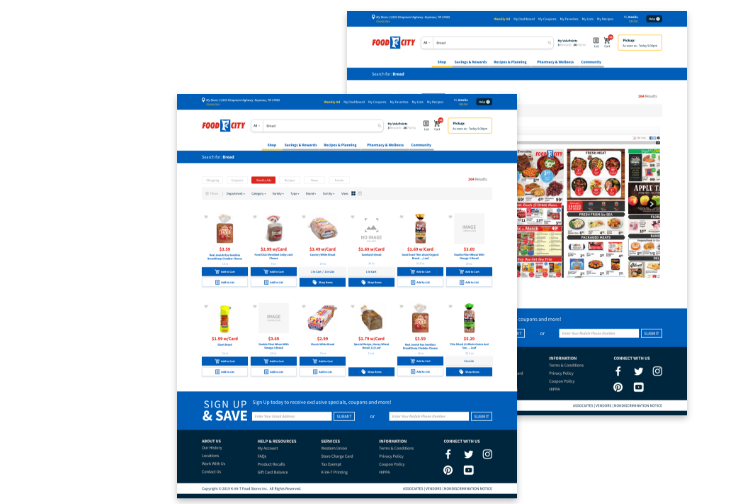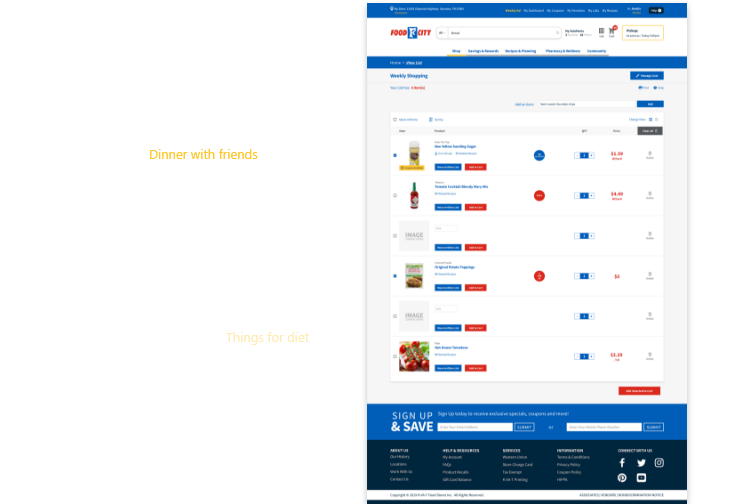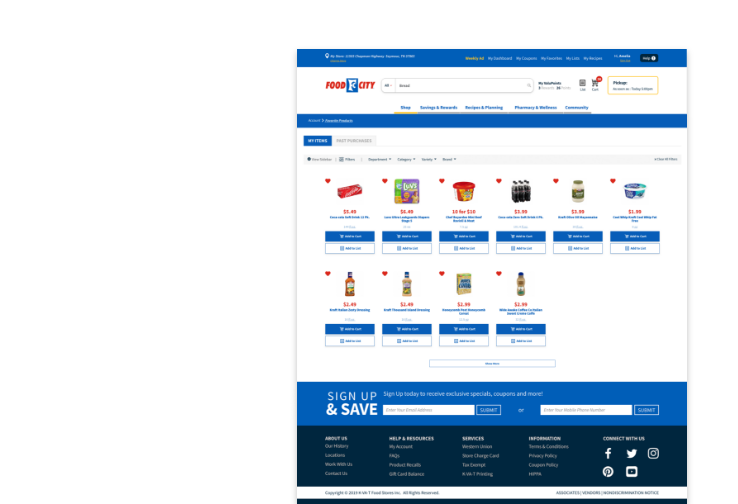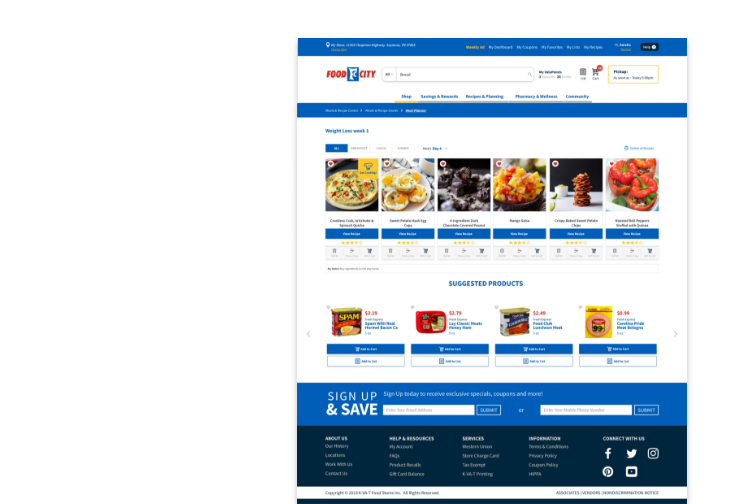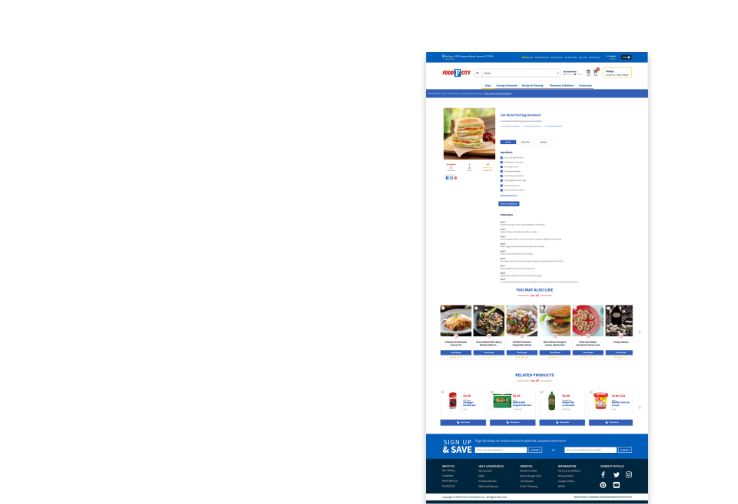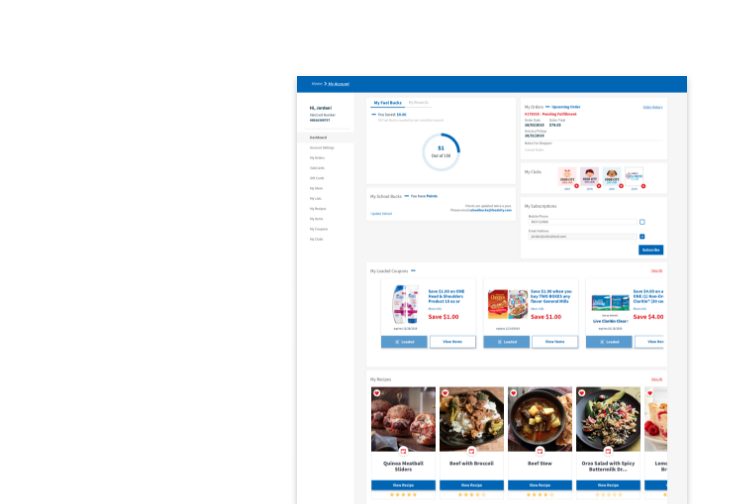
Wellness Club — New Year’s Diet Snapshot
Abingdon, VA. -
Wednesday, Jan 1, 2025.
Writetn by: Nicole Pazdziorko, RDN, LDN
The turn of the calendar year typically brings new resolve to improve eating habits, often in the form of one diet or another. From carnivore and ketogenic to mediterranean, vegan and everything in between, there is no shortage of different eating styles to adopt, each one with proponents touting amazing results. With such a broad range of diets promising improved longevity, reduced inflammation, higher energy levels, and weight loss it can be difficult to discern the best approach.
There is no one-size-fits-all approach to eating, and different people have various responses to different diets. For most individuals, striking the right balance for their health and quality of life means an approach that includes a variety of nutrient-dense and satisfying foods from different food groups, in the appropriate portions to meet energy needs. While some diets have more research backing the benefits, many have potential pros and cons, depending on individual goals. Here is a brief snapshot of some popular diets and potential pros and cons of each.
Low Carbohydrate Diets
What is it?
Carbohydrate restricted diets range from low carbohydrate – defined as limiting carbs to 130 grams or less per day – to very low carbohydrate, like the Ketogenic Diet, which typically limits carbohydrates to 50 grams or less per day. In place of high carbohydrate foods, the diet focuses on consuming foods high in protein and fat, with the keto diet focusing on higher fat and moderate protein. Since carbohydrates help our body hold onto water, adhering to a low carb diet often leads to rapid weight loss in the initial days and weeks. While rapid weight loss may be an appealing feature for some, because the weight loss primarily comes from water and not fat, the rate of weight loss will slow after a few weeks and strict carbohydrate restriction can be very difficult to sustain long-term.
Pros:
- Rapid weight loss in initial phase can be motivating for some people seeking to lose weight
- Higher fat and protein is often more satiating than higher carbohydrate meals
- May assist with blood sugar management in some individuals
Cons:
- Difficult to sustain long-term
- Dehydration and electrolyte losses from low carbohydrate intake
- Side effects of fatigue, confusion and headache resulting from low carbohydrate intake
- Risk for micronutrient deficiencies when eliminating fruit, grains and some vegetables
- Limited fiber, which is beneficial to digestion, gut and heart health
- Tends to be high in saturated fat, which can be harmful to heart health
Carnivore Diet
What is it?
Like the name suggests, the carnivore diet advocates eating foods exclusively sourced from animals and excluding plant foods. Beef, game meats, poultry, pork, organ meats, fish, eggs and modest amounts of dairy are typically included, while vegetables, fruits, legumes, nuts, seeds and grains are excluded. Limiting plant foods means that adherents of the carnivore diet are eating virtually zero carbohydrates and fiber. Proponents have credited the carnivore diet with improving gut health, increasing energy levels, and reducing inflammation; however, research shows that higher intake of red meat and saturated fat can lead to inflammation and increase risk for heart disease and certain types of cancer.
Pros:
- High protein and high fat can be more satiating than higher carbohydrate eating styles
- No need for tracking calories or portions
- Limits many highly processed foods like salty snacks, added sugars and sweets
Cons:
- Eliminates fiber, which is beneficial for digestion, gut and heart health
- Eliminates beneficial antioxidants found in fruits and vegetables
- Limits intake of several key micronutrients
- Difficult to sustain long-term
- High intake of saturated fats can be pro-inflammatory and increase risk for cardiovascular disease
Mediterranean
What is it?
The Mediterranean Diet emphasizes fruits, vegetables and whole grains, focuses on healthy fats, especially olive oil, and includes moderate amounts of eggs, dairy, fish and lean poultry, while limiting red meats and added sugars. This eating style has long been touted for benefits like improved heart health, weight management, anti-inflammatory benefits, diabetes prevention, and reduced risk of certain cancers.
Pros:
- Includes heart healthy unsaturated fats
- Focus on predominantly nutrient-dense, minimally processed foods, which may reduce inflammatory markers
- Includes fiber, and other essential nutrients from a variety of foods
- No food groups or macronutrients are eliminated
- Limits sources of saturated fats
Cons:
- Additional guidance may be needed for portion control
- Some people prefer the inherent structure that comes from other diets
Vegetarian and Vegan
What is it?
Vegetarian diets exclude all meat, poultry and seafood, but include eggs and dairy products, while a vegan diet excludes all meat, poultry and seafood, as well as eggs and dairy products. Both diets encourage a variety of plant-based foods, like fruits, vegetables, grains, legumes, nuts and seeds.
Pros:
- Encourages fiber-rich foods from a variety of plant foods
- Can be rich in vitamins and minerals, like potassium, vitamin A and C
- May be protective against cancer, cardiovascular disease and diabetes
- May assist in weight management
Cons:
- Adherents may rely on plant-based meat alternatives, which can be high in sodium and saturated fat
- Plant sources of iron are not as easily absorbed as animal sources
- Can be difficult to obtain some micronutrients, especially vitamin B12 for vegan diets
- Can be challenging to sustain over the long-term
Whether your goal in the new year is to promote longevity, lose weight, or simply to feel better, a key piece of the puzzle is finding a style of eating that you enjoy, is suitable to your individual needs and goals, and one that you can sustain for a long-time and adapt as your needs and goals change. Before making significant changes to an eating plan, it’s important to consult with a healthcare provider about what aligns best with your unique needs.

